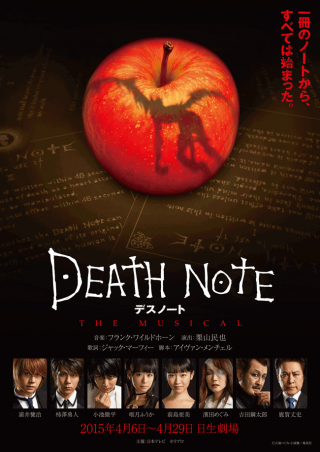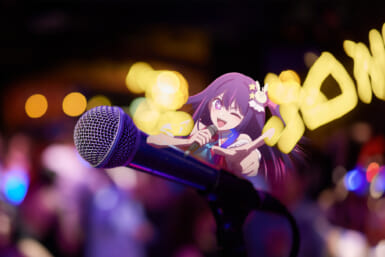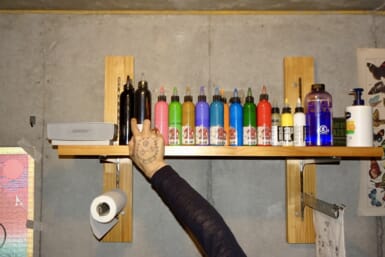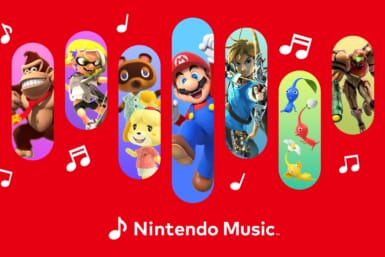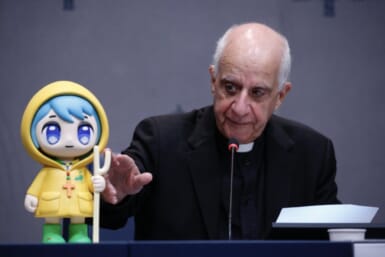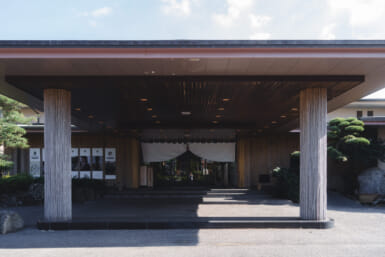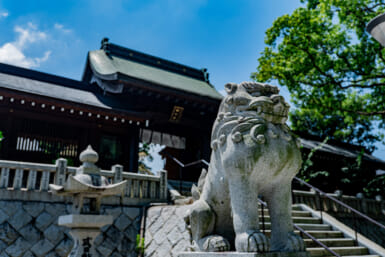After penning pop songs for the stars and finding fame on Broadway, Frank Wildhorn has taken on the challenge of creating a musical adaptation of one of Japan’s most celebrated manga franchises.
By Matthew Hernon
During the 1980’s Frank Wildhorn wrote music for a whole host of star-studded names, including the likes of Sammy Davis Jr., Liza Minnelli, and Julie Andrews. He is best known for his 1988 song “Where do Broken Hearts Go,” which gave Whitney Houston a record-breaking seventh consecutive number one single on the Billboard Charts. Over the past two decades his main focus has been musicals. A multi-Grammy and Tony Award nominee, he was the first American composer in 22 years to have three shows running simultaneously on Broadway: “Jekyll & Hyde,” “The Scarlet Pimpernel” and “The Civil War.”
A large number of his shows have become big international hits, selling out in countries all over the world. His latest is an adaptation of Tsugumi Ohba and Takeshi Obata’s manga “Death Note.” Already made into a TV anime series, video game and three live-action movies, it is the tale of a high school boy who finds a supernatural book that enables him to kill anyone whose name he writes down in it. But why did Wildhorn choose this particular story? Weekender recently caught up with him during his stay in Tokyo to find out.
How did the “Death Note” project come about in the first place?
It was a few years ago. I was at the after party of “Cyrano de Bergerac” in Japan and all of sudden Mr. Hori and Ms. Kawanori of HoriPro passed me this envelope and said take a look this. It was all very mysterious. On the plane on the way back I opened it up and saw the title “Death Note”—(“What’s that?”) It had all these interesting images that looked edgy and gothic in a modern way. It appeared to be the kind of thing I love doing.
I told one of my sons about the offer—he’s obsessed with Japanese culture; a real gamer, loves anime and that sort of thing—he just stopped and said, “Dad that is the coolest thing you’ve ever told me—just do it.” So with his voice in my head I went through the materials, including the comics and the movie. I must say I enjoyed them all very much.
What was it about the story that appealed to you?
Firstly it asks great questions. What is our real place in the universe? What would happen if you gave a normal person the power to play God? If you look at the main character, Light, he doesn’t think he is doing anything wrong at the beginning. Power corrupts him. Like “Jekyll and Hyde,” it becomes a morality tale between good and evil.
The predicaments and characters are both larger than life. I love how strange L is and the fact that he and Light are geniuses. Then the female character, Misa, brings a pop element to it. On top of all that you have this Shinigami (Death Gods) fantasy realm thrown in as well. Being a European-Jewish guy brought up in New York that was so exotic for me. It was all really intriguing—I felt I just had to do it. In truth it was a no-brainer.
How do you then begin to turn a tale like this into a musical?
After seeing the visuals you have to ask what is this going to sound like? How can I musicalize it? You are always learning something new in this industry so with every show I do, I consider myself to be a student, particularly when you are dealing with a story as unique as “Death Note.” A project like is like climbing a mountain—it takes a lot out of you. I don’t know how many more of these I have left in me so it had to be something special with an international appeal.
My job is not just to write it, but re-write it over and over again. As soon as a composer sees the actors doing their thing he or she will start re-writing. Almost every day the performers are getting new pages to memorize and the musical team is receiving new arrangements to learn. It’s fun to sit back and watch how they deal with that. For everyone involved there is a lot of blood, sweat and tears. Fortunately they are all incredibly hard working and efficient. You can get things done in three days in Japan that can take three months in New York.
What are the other differences between musicals here and on Broadway?
In terms of pressure the difference is massive. New York is on another galaxy. You are talking about the center of the media world where everyone is looking at you. I could sneeze and someone would write about it. If you look at the news part on Google I am reviewed every day of the year.
Working in Japan or any other country outside of America I feel a strong sense of responsibility to make a great show for the people who have believed in me, but it is nothing like the kind of scrutiny I get on Broadway. You have the most cynical critics in the world whose basic philosophy is: if it’s commercial or doesn’t challenge you, it can’t possibly be good. Don’t get me wrong, it’s been great for my career—it can just feel like a goldfish bowl at times.
How much notice do you take of the critics?
If there is something my assistant feels I can learn from he will give me an overview, but apart from that I try not to take too much notice. Over the years I’ve received both the good and the bad. They have been cruel at times, but they are risking nothing. Their tickets are free: I am the one stepping in the ring so they can write about it.
“I’m a self-taught musician who has gone down an unusual route to get to where to I am. I’m considered a bit of an oddball on Broadway and I love that. I don’t know anyone else who has followed a similar path. It’s been fun and I hope I’ve moved people along the way with my music.”
I’ve taken a lot of shots for being the pop guy—like it was a dirty word. The truth of the matter is that background was the best training I could have had for theater. I had days when I would be working with a country guy like Kenny Rogers in the morning, followed by a young gospel singer such at Stacy Lattisaw in the afternoon, then on to a rock band like Hootie & the Blowfish in the evening. My job was to identify each artist’s strengths and then try to frame them the best I could. That is effectively what I am doing now with my theater productions.
Why did you move away from the pop world into theater?
By the early nineties I had sold tens of millions of records, but I was getting bored of just writing another song for Natalie Cole or Patti LaBelle. Why not do theater and make 25 at once? In a romantic, naive, idealistic way I thought I could take my pop sensibility and bring it to theater like a blue-collar pop writer. I should have been nervous about how it would turn out, but I was just too stupid to even think about it.
I’m a self-taught musician who has gone down an unusual route to get to where to I am. I’m considered a bit of an oddball on Broadway and I love that. I don’t know anyone else who has followed a similar path. It’s been fun and I hope I’ve moved people along the way with my music.
Have you ever attempted to sing one of your own songs?
Do you know what? I’ve got all this soul and an absolutely horrible voice. I had to sing for a demo tape I did for Whitney Houston’s track “Where do Broken Hearts Go” and it was awful. The song needed a bridge, but I didn’t have any demo money left to go to the studio so I played it on the piano with my terrible voice over it and sent it off with a note that read, “here are three ideas for the bridge, let me know which one you like.”
[Record producer] Clive Davis wrote back saying, “We love number two, but please don’t ever sing your own songs again!” I still have the letter on my wall. Fortunately Whitney did a much better job and it went to number one. She was just amazing—if God had a voice it would be Whitney’s.
You have worked with a number of talented artists down the years, including your fiancee, Yoka Wao. How did you meet her?
I was asked to work with the Takarazuka Revue on the Cosmos Troupe’s production of the musical “Never Say Goodbye.” It was like nothing I’ve ever worked on. I remember at the start having to be blessed by a Shinto and a Buddhist Priest. As you know it’s women playing men and they were just fantastic. For this particular show one of the performers, Yoka Wao, was making her last appearance. She couldn’t speak English and I couldn’t speak Japanese, which meant we couldn’t really talk to each other, but there was a real chemistry there.
Two years ago she enrolled at Columbia College to study English so we are able to communicate now. She just went off without telling anyone. It was really brave of her, but that is the way she always is. She loves a challenge. I remember thinking she would make a great Mina (Harker) for the “Dracula” production I was making a few years ago, but straight away she was insistent, “I want to be Dracula.” It’s such a demanding role, but she was just a natural.
Finally, moving back to the present, what are your hopes for the “Death Note” Musical?
I already see this as a potential worldwide hit. Now it is the job of the producers to get the word out. I have faith in them because I know how passionate they are about this. We have been releasing things little by little and the feedback has been good.
I was worried when we first started—not about my fans or theater-lovers, but about those young people who loved the manga and animated version because maybe they didn’t want this to be a musical. I met (artist) Takeshi Obata and told him I was just borrowing the story. I really hope it attracts a younger crowd who will see that theater doesn’t necessarily have to be for their parents’ generation.
“Death Note” will be playing at Nissay Theater in Chiyoda-ku until April 29. For more information call 03-3503-3111 or visit http://deathnotethemusical.com/eng.


